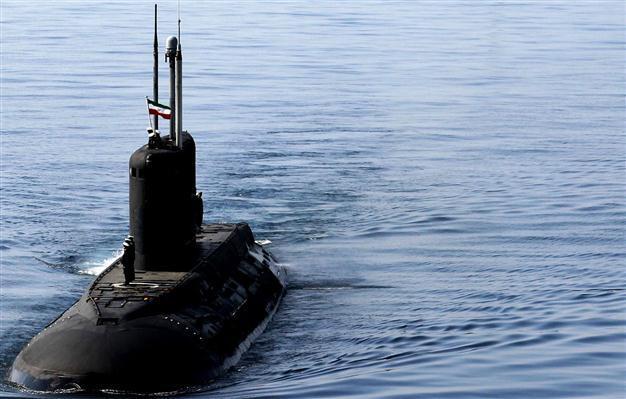Foreign Minister Davutoğlu warns of ‘regional Cold War’
ANKARA - Hürriyet Daily News

Amid ongoing tensions with the US, the Iranian Navy resumes a military drill near the Strait of Hormuz. ABACAPRESS photo
The emergence of fresh sectarian tensions between Sunnis and Shiites threatens to plunge the Mideast into “a regional Cold War,” Turkey’s foreign minister warned yesterday ahead of a critical visit to Tehran. “We are determined to avoid a regional Cold War. Regional sectarian tension would be suicide for the entire region,” Foreign Minister Ahmet Davutoğlu told Anatolia news agency in an interview yesterday. Davutoğlu departed for Tehran late last night in preparation for two days of talks with Iranian officials.The Turkish foreign minister’s trip to Tehran comes amid rising tensions in the Middle East due to growing concerns of a fresh armed conflict between Iraqi Shiite and Sunni groups following the U.S. withdrawal that could even spread to Baghdad’s neighbors and an ongoing turmoil in sectarian-fragile Syria. “There are some circles who wish to begin a Cold War on the axis of Sunni-Shiite tension whose affects would last for decades. I will raise this issue during my visit [to Tehran],” he said.
Turkey believes a dangerous situation is arising in the Middle East, Davutoğlu said, adding that Ankara had witnessed increasing polarization not only in Iraq and Syria but in every corner of the region.
Turkey is determined to avoid such polarization and will meet with every related party to prevent unwanted developments, he said. Noting that the entire region and its people suffered from the Iran-Iraq war in the 1980s, as well as Saddam Hussein’s occupation of Kuwait in the 1990s, Davutoğlu said: “Turkey is strongly against fresh tensions in the region, be it Sunni-Shiite tension or an anti-Iran campaign or the recent row [between Iran and the United States] in the Gulf. That is why our Iraq policy envisages being engaged with every group. No one should commit a mistake in this; no party should act with an understanding that a certain ideology, certain sect or ethnic group can rule [Iraq].”
Turkey is deeply concerned that Iranian influence will increase in Iraq and create a fresh conflict among Sunni, Shiite and Kurdish groups that could ultimately result in the country’s partition. Iran, for its part, has slammed Turkey for siding with the West against Syrian President Bashar al-Assad, its key regional ally. “We have different opinions on Syria but our stance has principles. They have their own perspectives and principles. We may discuss them,” Davutoğlu said. Despite differences between Tehran and Ankara, the fact that the visit can occur at all proves the close historical and friendly relations between Iran and Turkey, the foreign minister said.
Visits to Moscow and Washington
“Everybody in this region is a friend and brother. If Bashar al-Assad had not launched this war against his own people, we would not be facing such a problem.” Davutoğlu said he was planning to meet Iranian leaders and intellectuals twice a year as part of a deal with Iranian Foreign Minister Ali Akbar Salehi. Expressing Turkey’s determination to prevent regional tension, Davutoğlu said he would hold talks with all relevant parties in coming weeks, noting that he would stage visits to Moscow and Washington in late January and early February to discuss regional issues. In addition, Turkey and the Gulf Cooperation Council will hold a strategic dialogue meeting this month. “What is important for us is to reduce the tension in the region,” he said.
















